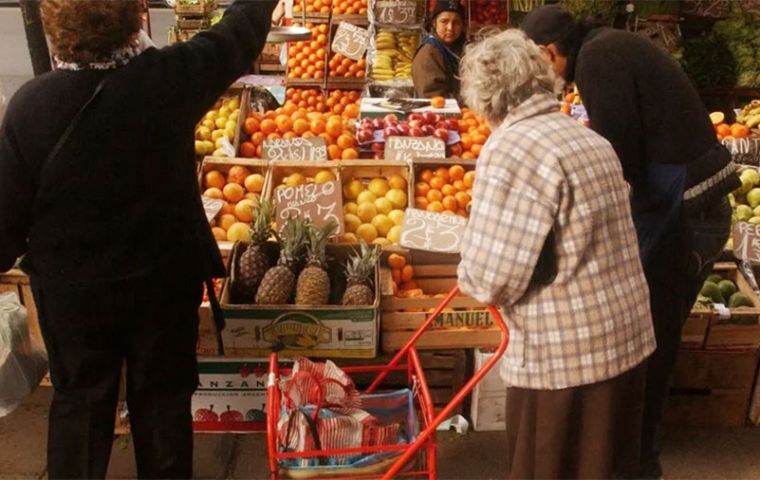MercoPress. South Atlantic News Agency
Hectic July shoots up Argentina's inflation
 Batakis failed to bring confidence to the markets
Batakis failed to bring confidence to the markets After having almost three economy ministers in one month, it was no surprise to see Thursday that July's inflation was the highest since 2002, as the National Institute of Statistics and Census (Indec) released its latest report.
Inflation in July reached 7.4%, the highest level since the explosion of one peso / one dollar convertibility of the 1990s.
In the first seven months of 2022, prices accumulated an increase of 46.2%, and interannually it reached 71%, which is unprecedented since the last throes of hyperinflation ended Raúl Alfonsín's government in 1989. By December, yearly inflation is expected to be around or above 90%
“Of course, I see what is happening with prices. That's why we left all the bargaining processes open so that salaries could beat inflation and we announced the increase for retirees and a special bonus. In the meantime, the State is making the necessary efforts to solve the problem,” President Alberto Fernández said.
After the resignation of Economy Minister Martín Guzmán on July 2 and a reported short-circuit between Fernández, and Vice-President Cristina Fernández de Kirchner, came Silvina Batakis, who failed to inspire the confidence the markets needed.
An exchange rate gap amid import restrictions and a political crisis caused the supply chains to break down for several days, with various items ending up “priceless,” meaning traders were unwilling to sell out of fear that whatever they received in pesos would be less than the item's worth in US dollars. Hence, some retailers and businesses adjusted their sales prices by applying the “just in case” factor. It was “the cost of a devaluation, without having devaluated.”
On Thursday, July 28, the Government announced the merger of several offices under Superminister Sergio Massa, whose name calmed down the markets, although he did not take office until a week later after resigning his seat on the Lower House. For that reason, it would be inaccurate to say there were 3 ministers in July, although his name was enough to appease speculators.
The unofficial dollar went from AR$ 235 at the beginning of July to AR$ 328 pesos on July 22 (a 40% increase), but ended the month at AR$ 286 pesos.
Household equipment and maintenance, where imports of finished products and inputs weigh heavily, had a monthly increase of 10.3%, while the increase in clothing was 8.5%, with a year-on-year increase of 96.7%. In food and beverages, the monthly increase was 6%, below the 6.7% increase in June.




Top Comments
Disclaimer & comment rulesCommenting for this story is now closed.
If you have a Facebook account, become a fan and comment on our Facebook Page!